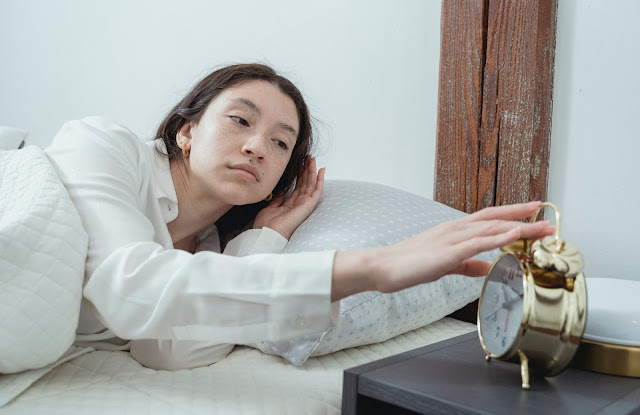In today's fast-paced and chaotic environment, it is more important than ever to prioritize self-care. All actions and practices that contribute to our entire well-being, whether physical, mental, or emotional, are considered self-care. It entails taking the time to nourish ourselves, both physically and psychologically, to live full and healthy lives. This essay examines the relevance of self-care and the multiple advantages it provides to individuals.
The Concept of Self-Care
 |
| Self-care |
Self-care is more than just treating ourselves occasionally or pampering ourselves; it is a complete approach to wellbeing centered on self-love, self-respect, and self-compassion. It entails making time for activities and behaviors that boost our general health and happiness.
The Importance of Physical Self-Care
Taking care of our physical health is vital for living a healthy existence. Physical self-care requires regular exercise, enough sleep, and a good diet. Incorporating these techniques into our daily routines can boost our energy, strengthen our immune system, and reduce our risk of chronic diseases. Participating in physical activities that we enjoy improves not just our physical health but also our mood and reduces stress.
The Significance of Mental and Emotional Self-Care
 |
| Self-caring |
In addition to physical self-care, we must also nurture our mental and emotional well-being. Relaxation practices, such as meditation and mindfulness, aid in the reduction of stress, anxiety, and depression. Journaling, reading, or engaging in hobbies can help with self-expression, mental clarity, and self-awareness. Seeking therapy or counseling when necessary is another important element of mental and emotional self-care since it offers significant support and direction during difficult times.
The Impact of Self-Care on Productivity and Relationships
Self-care habits improve not just our individual well-being but also our productivity and relationships. We become more focused, energetic, and productive when we prioritize our needs and take care of ourselves. We may avoid burnout and maintain a good work-life balance by setting boundaries and learning to say no. Furthermore, when we take care of ourselves, we are better able to care for our loved ones. By engaging in self-care, we demonstrate to others the significance of self-care and inspire others to do the same.
Self-care is critical for our general well-being. It is an investment in ourselves that returns dividends in the form of better physical health, greater mental health, higher productivity, and stronger relationships. Remember that self-care is an essential act of self-preservation, not selfishness. We can live happier, healthier, and more fulfilled lives by implementing self-care techniques into our daily lives.
Holistic Self-Care Methods
 |
| Holistic Self-Care |
Discuss the comprehensive aspect of self-care, highlighting how physical, mental, and emotional well-being are all intertwined. Investigate the idea of holistic self-care and how treating different elements of health can lead to a more balanced and meaningful existence.
Personal Nutritional Care
Investigate the significance of a healthy diet as a form of self-care. Give practical advice on mindful eating and incorporating nutrition into one's self-care regimen.
Creating Personal Self-Care Routines
Recognize that self-care is a highly personal activity. Encourage readers to experiment with and tailor their self-care routines to their individual tastes, interests, and requirements.
Using Technology to Improve Self-Care
Examine how technology, such as meditation apps, fitness monitors, and mental health apps, can help with self-care. Discuss the advantages and disadvantages of adopting technology into one's self-care routine.
Self-Care for the Environment
Emphasize the importance of the physical surroundings on happiness. As part of an overall self-care approach, suggest strategies to build a helpful and nurturing atmosphere.
Self-care and Time Management
To make time for self-care, emphasize the necessity of time management. Provide practical advice on how people might prioritize self-care in their hectic schedules.
Self-Care in Different Cultures
Investigate how other cultures approach and prioritize self-care. Highlight cultural traditions that enhance well-being and define self-care with the cultural context in mind.
Self-Care Prevention
Discuss the relevance of self-care in preventing health problems rather than merely dealing with them. Give instances of preventive self-care methods including regular health checks and early intervention.
Mind-Body Relationship
 |
| Mind-Body Relationship |
Investigate the complex relationship between mental and physical wellness. Discuss yoga and tai chi as practices that specifically target the mind-body link for total well-being.
Empowerment and Self-Care
Examine how self-care contributes to feelings of empowerment and self-efficacy. Share tales or case studies about how people's lives have been transformed by consistent self-care activities.
Social Support and Community Participation
Stress the importance of social ties in self-care. Discuss the advantages of community involvement and how a support network improves overall well-being.
Financial Wellness and Self-Care
Recognize how financial stability affects mental and emotional well-being. As part of a holistic self-care plan, provide financial management advice.
FAQ
1. What are some examples of self-care activities?
Exercise, meditation, reading, practicing gratitude, having a relaxing bath, spending time outdoors, pursuing hobbies, and seeking treatment are all examples of self-care activities.
2. How frequently should I engage in self-care?
There is no fixed schedule for exercising self-care. It should be adapted to your specific requirements and tastes. To maintain a balanced lifestyle, try to add self-care activities to your routine regularly.
3. Is self-care limited to adults?
No, self-care is necessary for people of all ages. Teaching children and teenagers the value of self-care at a young age prepares them for a lifetime of happiness.
4. Does self-care aid in stress management?
Absolutely. Self-care activities relieve stress, promote relaxation, and improve general emotional well-being.
5. Is self-care a luxury or a requirement?
Self-care is a requirement, not a luxury. It is critical for our physical, mental, and emotional health, as well as leading a more fulfilling life.









